ABYSS DEEP SEA WATER SEALS
All our Clean factory Rolex are fitted with Patent Abyss Deep-Sea Water Sealants and unique Abyss double-core synthetic ”O” Rings. These are made from a patent Abyss combination of polymer neoprene and Fluorocarbon synthetic rubber, which is far more resistant to cracking, corrosion, and aging, which can be a problem with natural rubber.
Small Details determine success or failure, So we are scrupulous about every detail.
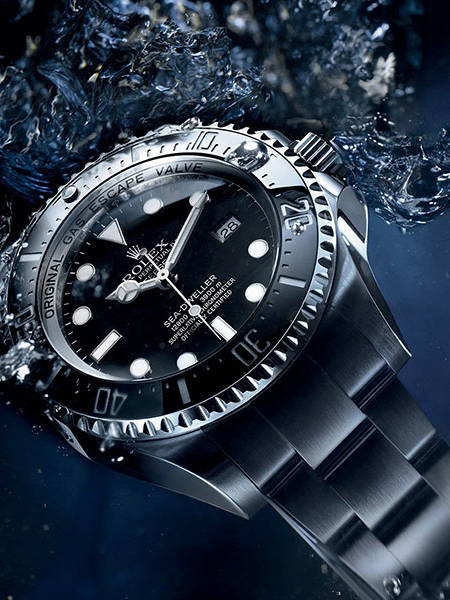
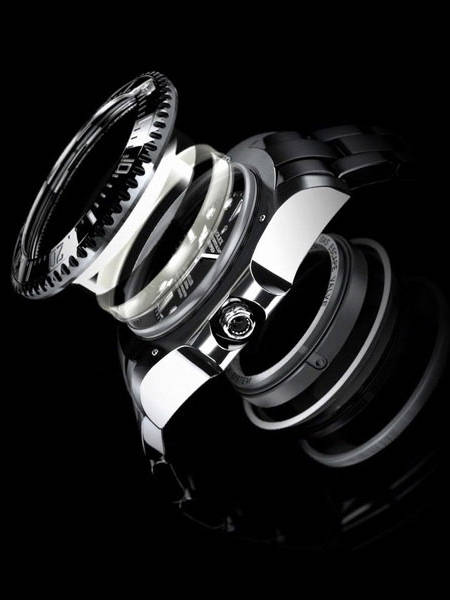
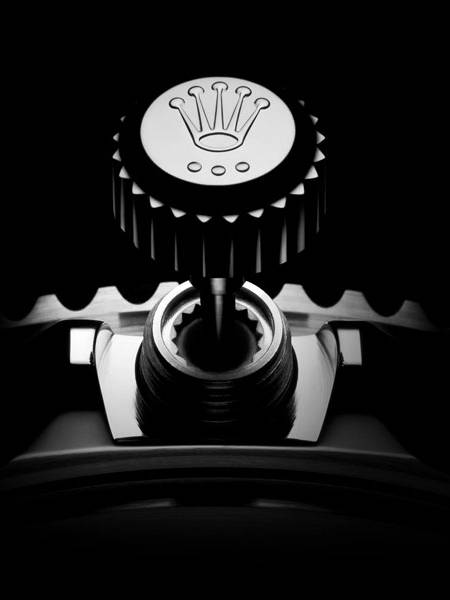
All our Clean factory Rolex are fitted with Patent Abyss Deep-Sea Water Sealants and unique Abyss double-core synthetic ”O” Rings.
ABYSS is a renowned and respected company that specializes in manufacturing watch sealants and durable pressure seals. These seals are used on many infamous diving watches to ensure waterproofing of over 4000 meters. This is yet another exclusive feature that separates our Clones from the rest.
ABYSS® type DEEP is a combination of polymer neoprene and Fluorocarbon synthetic rubber gaskets, and they have excellent resistance to high temperatures, ozone, oxygen, mineral oil, synthetic hydraulic fluids, fuels, aromatics, and many organic solvents and chemicals. Temperature resistance for static applications is limited to approximately –65°F (–54°C) and up to 400°F(204°C) although in certain situations it is suitable down to –80°F (–112°C). Under dynamic conditions, the lowest service temperature is between -35°F and -40°F (–37°C and –40°C). Gas permeability is very low and similar to that of butyl rubber. Unique fluorocarbon compounds exhibit improved resistance to acids, fuels, water, and steam.
Mostly, regular replica versions are fitted with crude rubber sealants,, which generally offer poor water resistance. These also have to be regularly replaced to avoid moisture and dirt damaging the watch. All our watches are professionally sealed to keep out day-to-day dirt and are pressure tested up to 300 meters.
WATERPROOF up to 300 METERS WITH WORKING HELIUM RELEASE VALVE
Our selected divers’ models now come with a working Helium Release Valve and are fitted with the same extra-thick Sapphire crystal as the original, making them water-proofed to a staggering 300 meters.
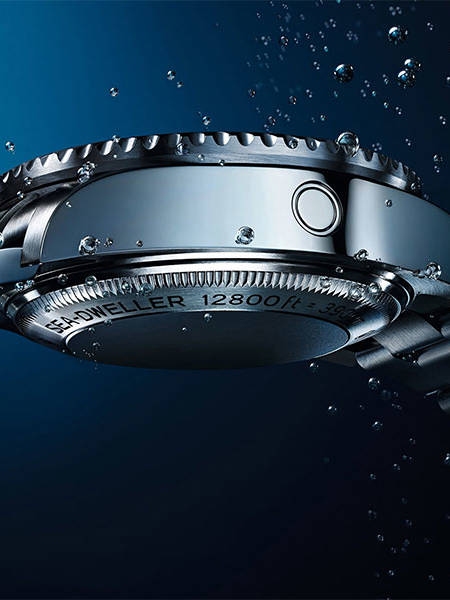
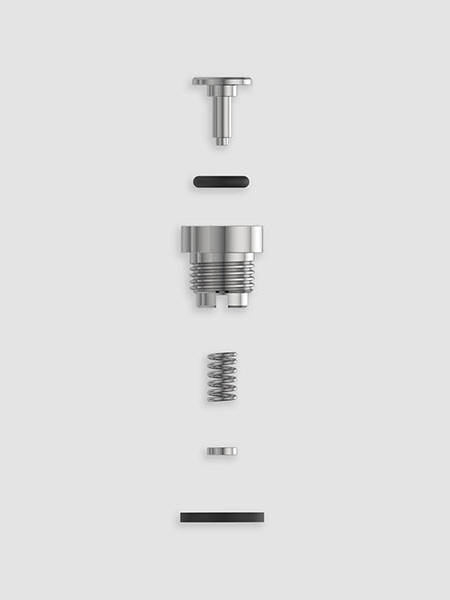
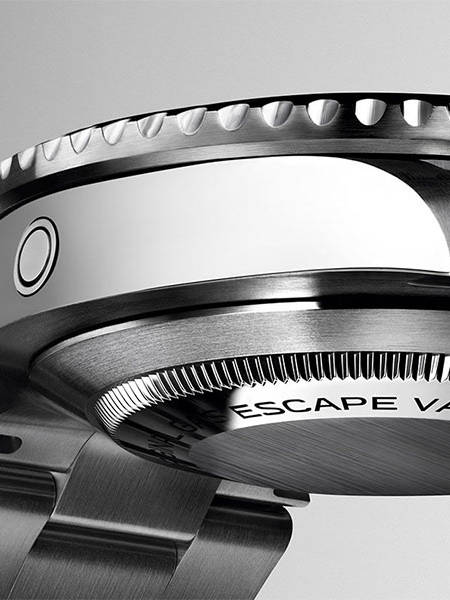
True Divers Standards
All our Clean Factory Rolex are tested for ultra water tightness at 100 meters by the industry’s highest water resistance standard, the ISO 6425. The top-quality solid stainless steel construction will prevent salt water from eating into the watch. And the fine Swiss craftsmanship will guarantee your watch will never break down underwater. Their ability to perform flawlessly underwater for a long duration and resistance against condensation provide the highest stability for underwater professionals. Every watch is tested in 3 different Waterproof Test Machines for five days. One uses air pressure, and the final two use water.
We perform some of the most extensive water resistance testing. In this first test station, the watches are placed in a shallow pan of tap water. Many may see this as a rather low hurdle for water resistance testing but it’s an important step many manufacturers miss. A watch can actually become more water resistant in high-depth/pressure situations, but if a fault exists in the case or the seals, this low-pressure test is far more likely to find it. If this step passes, the watches are placed in this chamber for high-pressure testing.
In this third and final test, watches are placed on a heating device, and then a drop of cool tap water is placed on the top of the crystal. If condensation appears on the underside of the crystal, then it is known that the watch case is compromised in some way and fails the test. All our Clone watches are fitted with Abyss Patented Deep-Sea Water Sealants and unique Abyss double-core silicone ”O” Rings. These are made from neoprene silicon, which is far more resistant to cracking, corrosion, and aging, which can be a problem with natural rubber. A screw-in crown with Abyss rubber seal (O-ring) is fitted with a double seal that repels dust and waterproofs up to 300 meters. The brand emblems are carved out from one solid piece of stainless steel or solid gold, exactly like the real thing.
Dissecting the Helium Release Valve
The first photo shows the disassembled helium escape valve placed according to how it fits together. The piston with its ABYSS “O” ring gasket is on the left. This moves out (i.e., to the left) if the pressure inside the case exceeds the tension of the spring holding it in place. Next is the body of the valve, which screws into the watch case from the outside via the slots on its right. The flat portion on the left where the threads end accommodates a flat gasket. The spring rests inside the valve’s body, ensuring it is water-resistant even without pressure on the piston from the outside. Last is a flat metal washer. This is firmly friction-fitted to the right-hand side of the piston, which is tapered to accommodate it. The washer also provides a base for the spring to rest on, thereby pulling the piston firmly to the right with enough pressure to squeeze the gasket and ensuring the water resistance of the valve.
The second photo shows the piston and its ABYSS “O” ring gasket on the left. The valve’s body is on the right, showing the recess into which the piston and gasket fit. When installed correctly, the flat part of the piston and the valve should be flush with the watch case. This simple and reliable over-pressure relief valve performs exactly as designed. The gaskets are superior, longer-lasting ABYSS-type DEEP gaskets that are a potent combination of polymer neoprene and Fluorocarbon synthetic rubber, which is far more resistant to cracking, corrosion, and aging and can be a problem with natural rubber. Although slightly less flexible, it was developed to withstand high oxygen environments and other hostile chemicals and gases that will quickly deteriorate natural rubber gaskets.
Deep-sea divers not only needed solutions for water resistance at extreme depths, but they also faced the danger of explosive decompression caused by helium penetrating the interior of the watch (divers breathed the mixture of oxygen and helium within their hyperbaric chamber after lengthy deep-sea dives).To maintain a pressure identical to that underwater, the mixture in the hyperbaric chambers remained the same during the different phases of work and rest periods. This system was designed to eliminate the need to depressurize the chamber after each phase of work.
Before returning to free air, depending on the depth attained, a period of depressurization was necessary to equalize the internal and external tension of the human organism. Though the depressurization process is slow, the gas that accumulated inside the watch, having no means to escape fast enough, exploded the crystal off the watch, risking injury to those inside the chamber and severely damaging an expensive watch. A solution came by installing a one-way pressure Helium release valve on the side of the watch case at the nine o’clock position. The one-way valve will begin to equalize the pressure inside the watch when the difference between the exterior and interior of the watch exceeds 2.5 kg per sq. cm.
